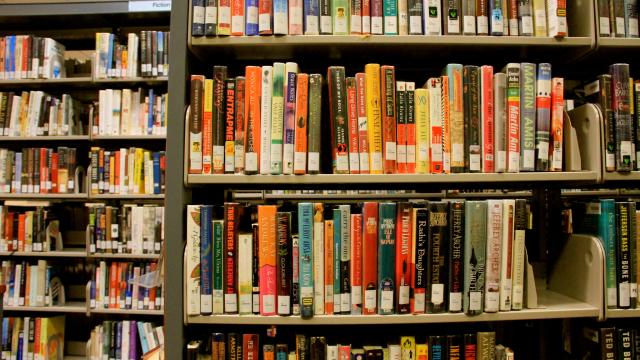Google’s been embroiled in a battle with writers and the Authors Guild over whether or not the company’s book scanning project infringed on their copyright. Today the US 2nd Circuit Court of Appeals held that it’s fair use.
In case you’ve never used Google Books before, it’s a searchable database of millions of books that Google has digitised through agreements with libraries. Many of the books are nonfiction and most are out of print. When you search for something in Google Books, it tells which of those books have the phrase in it and how many times it appears. You’ll also get a maximum of three “snippets” — images of about 1/8 of a page — showing the phrase you searched for. Google also has a myriad of other restrictions that make it really hard to use the database to see a significant amount of the book, including blacklisting ten per cent of the book from the Internet entirely.
The Authors Guild and a few named plaintiffs — authors whose books appeared in the database without their permission — sued Google for copyright infringement. And when the case was dismissed, they appealed to the 2nd Circuit. Which was not any more receptive to their arguments than the district court was.
Both the search function and the snippet functions were deemed to be fair use, with the court applying each of the four factors outlined in federal law:
(1) the purpose and character of the use, including whether such use is of a commercial nature or is for nonprofit educational purposes;
(2) the nature of the copyrighted work;
(3) the amount and substantiality of the portion used in relation to the copyrighted work as a whole; and
(4) the effect of the use upon the potential market for or value of the copyrighted work.
The court found the search function transformative since “the result of a word search is different in purpose, character, expression, meaning, and message from the page (and the book) from which it is drawn.” The purpose is to make information about the book available, not the information in the book. Snippet view was also deemed transformative as it added value to the search function’s new use — it tells researchers whether the book uses the term in a way that would induce her to obtain a copy of the book.
The court also dismissed the argument that Google’s existence as a for-profit company weighed against fair use, given the “highly convincing transformative purpose.”
As for the second factor, the court found it not significant that the majority of the books Google digitised were nonfiction.
As for the third factor, the court also didn’t find the copying of an entire book to weigh against Google, since the text wasn’t made available to users. It also pointed out that “it is literally necessary” to copy a whole book to make it searchable. The way the snippet function works — all the roadblocks to seeing a significant chunk of the text — weighed in its favour.
And the final factor deals with whether the copy made is a competing substitute for the original. The court was not impressed by the argument made by the Author’s Guild here, either:
Especially in view of the fact that the normal purchase price of a book is relatively low in relation to the cost of manpower needed to secure an arbitrary assortment of randomly scattered snippets, we conclude that the snippet function does not give searchers access to effectively competing substitutes. Snippet view, at best and after a large commitment of manpower, produces discontinuous, tiny fragments, amounting in the aggregate to no more than 16% of a book. This does not threaten the rights holders with any significant harm to the value of their copyrights or diminish their harvest of copyright revenue.
The plaintiffs threw the kitchen sink of arguments at Google — that copyright holders have the right to control way their books are searched and excerpted, that hackers could get to the copies Google has and give them out for free, and that Google’s agreement with the libraries to give them digital copies of the books the libraries gave to Google makes them vulnerable to the library using the copy in an infringing way. Considering these claims is where the court got snippy.
There is “is no merit” to the argument that they have rights in search and snippets. The court mentions that their own expert praised Google’s security. The court says that the plaintiffs describe the arrangement between Google and the libraries as “nefarious” when what the libraries essentially did was contract with “Google that Google would use its expertise and resources to make the digital conversion for the library’s benefit.”
In addition to the clear ruling of the legality of Google Books, the court’s opinion does a great job of explaining the history of copyright law and its purpose. From page thirteen of the opinion:
[W]hile authors are undoubtedly important intended beneficiaries of copyright, the ultimate, primary intended beneficiary is the public, whose access to knowledge copyright seeks to advance by providing rewards for authorship.
Read the full opinion here.
Image credit: CUTGroup #6: OpenStreetMap Editor by Daniel X. O’Neil/flickr/CC BY 2.0
